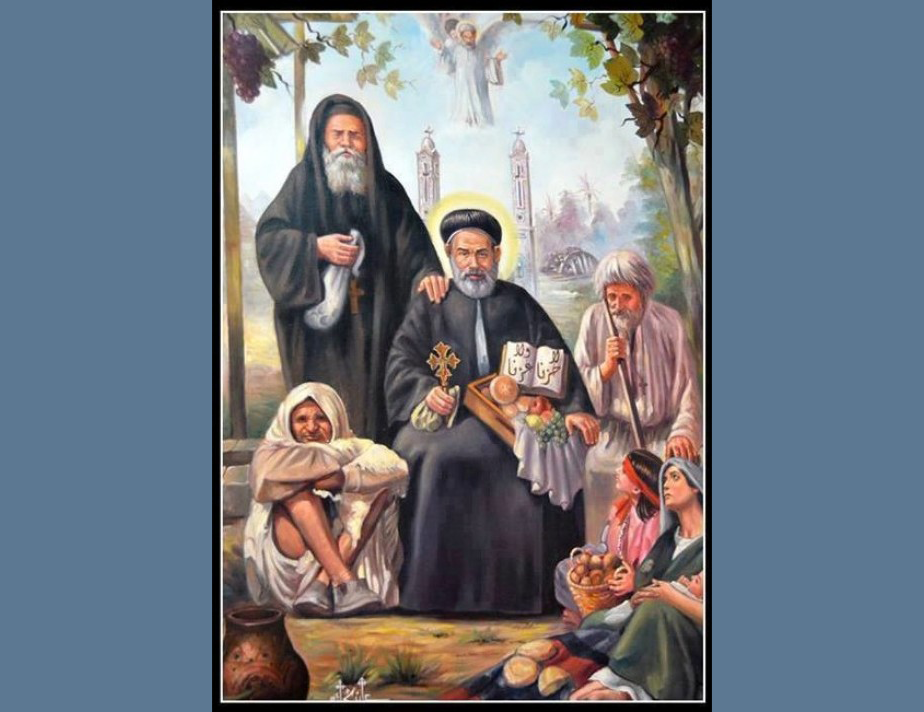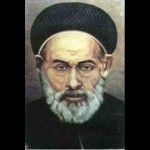Anba Abraam was a saintly monk of the twentieth century. As it is said, "Therefore you shall be perfect, just as your Father in Heaven is perfect" (Matthew 5:48) so did St. Abraam live his holy life. Born in a small town near Cairo, Egypt, Anba Abraam grew up in a Christian home with the …
Anba Abraam was a saintly monk of the twentieth century. As it is said, “Therefore you shall be perfect, just as your Father in Heaven is perfect” (Matthew 5:48) so did St. Abraam live his holy life. Born in a small town near Cairo, Egypt, Anba Abraam grew up in a Christian home with the Lord Jesus Christ ever before him. He would gain renown not only in Egypt but far beyond because of his great love for the Lord which was shown through his sanctity, spirituality, and intense compassion for all the needy. When Anba Abraam was appointed a deputy bishop in the City of Minya, he converted the bishopric into a shelter for the homeless, orphans, poor and the strangers. Some years later he moved and became head of El-Moharak Monastery and opened the doors of the monastery to the needy, poor and the widows. Satan moved against some of the monks residing in the monastery and he was accused of wasting the resources of the monastery upon the poor. They persisted until Anba Abraam was dismissed as head of the monastery and they turned out the poor whom he cared for.
Then he went to live in El-Baramus Monastery. The saint had been brought to the same sanctuary in which Yohanna-n-Nasikh lived. Consequently when the later became St. Mark’s successor and the Fayoum people needed a Shepherd, Yohannan-Nasikh ordained Anba Abraam whom he loved greatly. When ordained Bishop of Fayoum, he excelled in doing mercy to the extent that he gave everything he owned. One day a penniless man came to ask him for money to spend on his wife who gave birth to a baby. The Bishop gave him one pound, all he had at that moment. When the poor man went out, a deputy of the Bishop who knew that he had received a pound met him. The deputy took the pound from him and replaced it by a fourth of a pound. The poor man returned to the Bishop and told him what had happened. The Bishop called his deputy, rebuked him for his hard heart, and lack of his faith and asked him to return the pound to the poor man, not to take back the fourth of the pound and to give him also a quilt because it was winter. When the deputy protested the Bishop said, “The Lord will provide.” After the poor man left, the Bishop received from one of the believers a money order for ten pounds and an invoice for receiving ten units of wheat.
Another day, a poor woman went to him when the Bishop had no money. But someone had given him a shawl, which he never used. He apologized to the woman that he had no money, gave her the shawl saying that she may sell it and use the money. The woman took it and went to the market to sell it. There the owner of the shawl saw her, bought it from her and returned it to the Bishop. Before giving the shawl to the Bishop, he asked,” Father why did you not use the shawl as it is cold these days?” The Bishop replied, “The shawl is Upstairs my son” meaning that it is with the Lord Jesus Christ. Then the man presented the shawl to him. The Bishop said, “I hope you gave the poor woman the right price.” The man replied, “Yes father, I gave her the right price.”
Anba Abraam was endowed with extraordinary gifts including that of healing. He used these gifts to cure and relieve all those who sought him, however numerous.
These are but a few of the examples of Anba Abraam’s generous giving. This saint always gave with the Spirit of Love. Love in every matter, in every virtue, and in every practice is like the soul to the body. If the soul left the body it would immediately die and not exist.
Likewise, God rejects any virtue without the Spirit of Love. Christianity lifts up our compassion and we sense the feelings of others, “Rejoice with those who rejoice, and weep with those who weep” (Romans 12:15). Our teacher, St Paul says, “And though I bestow all my goods to feed the poor, and though I give my body to be burned, but have not love, it profits me nothing” (I Corinthians 13:3).
“Blessed are those who have mercy Who give to the poor and fast and pray. The Holy Spirit will fill their hearts. The Son will show them mercy on Judgment Day.”
May we always have the Spirit of Love within our hearts encouraging us to follow the example of the great saint, Anba Abraam in helping those less fortunate than ourselves.
Join Us: Sign Up Today!
Tags:












